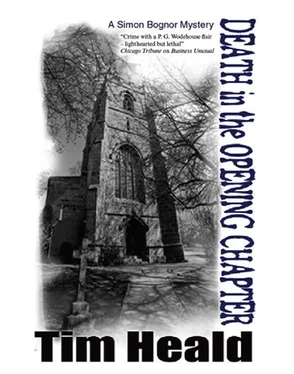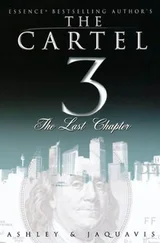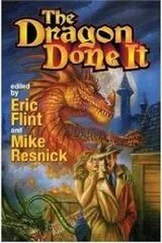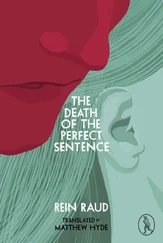Tim Heald - Death in the opening chapter
Здесь есть возможность читать онлайн «Tim Heald - Death in the opening chapter» весь текст электронной книги совершенно бесплатно (целиком полную версию без сокращений). В некоторых случаях можно слушать аудио, скачать через торрент в формате fb2 и присутствует краткое содержание. Жанр: Криминальный детектив, на английском языке. Описание произведения, (предисловие) а так же отзывы посетителей доступны на портале библиотеки ЛибКат.
- Название:Death in the opening chapter
- Автор:
- Жанр:
- Год:неизвестен
- ISBN:нет данных
- Рейтинг книги:5 / 5. Голосов: 1
-
Избранное:Добавить в избранное
- Отзывы:
-
Ваша оценка:
- 100
- 1
- 2
- 3
- 4
- 5
Death in the opening chapter: краткое содержание, описание и аннотация
Предлагаем к чтению аннотацию, описание, краткое содержание или предисловие (зависит от того, что написал сам автор книги «Death in the opening chapter»). Если вы не нашли необходимую информацию о книге — напишите в комментариях, мы постараемся отыскать её.
Death in the opening chapter — читать онлайн бесплатно полную книгу (весь текст) целиком
Ниже представлен текст книги, разбитый по страницам. Система сохранения места последней прочитанной страницы, позволяет с удобством читать онлайн бесплатно книгу «Death in the opening chapter», без необходимости каждый раз заново искать на чём Вы остановились. Поставьте закладку, и сможете в любой момент перейти на страницу, на которой закончили чтение.
Интервал:
Закладка:
He himself walked at a speed which suited him but, essentially, belonged to no one else. Because of this, he was often an anthropomorphism of Rudyard Kipling’s ‘cat that walked by himself’. He was at one and the same time gregarious and solitary, and his walking speed suited him. When it was appropriate he adjusted his speed to that of other people, but he was basically only happy at his own idiosyncratic medium pace. It left him alone with his own thoughts, untroubled by interruption.
So Simon and Monica walked at different speeds, but they sang from the same, or at least similar, hymn sheets and talked the same game. Since they had first met, they had been each other’s greatest, usually only, confidants. They talked together often and in different situations, many stationary, but they had always talked together en plein air, walking. This involved compromise and usually meant that Simon walked faster or slower than he would have liked. If he maintained his own pace, he usually fell behind his wife or pulled ahead. In either case, conversation became impossible. Sometimes this worked.
Today, however, was a talking occasion taken at a slow speed, which meant that Bognor took his foot off the gas pedal and sauntered alongside his wife, concentrating on her but also appreciating the wild garlic.
‘I don’t believe the vicar killed himself,’ he began, as they left the ha-ha behind them and turned right into the woodland garden.
‘Why not?’ Monica wanted to know. ‘Are you quite sure it’s not because that unpleasant chief constable thinks otherwise?’
Bognor wondered whether the cowpat he had rather adroitly avoided was actually cow dung or belonged to some other animal; wilder and more obviously suited to woodland rather than open pasture or meadow. She could be right. He had a knee-jerk objection to authoritarianism, particularly when it was based on convenience rather than true authority. If men like Jones took a view then Bognor’s immediate response was to take another, preferably contrary. He had learned to disguise this with a fog of bureaucratic prevarication which made him seem more amenable and reasonable than he actually was. He never fooled himself, and seldom Monica, but he was surprisingly good at pulling the wool over the eyes. Better still, he was a past master at making people think that if wool had been pulled, it was they and not Bognor who had done the pulling.
‘You’re quite right,’ he conceded. ‘I don’t like the chief constable and I’m inclined to disagree with whatever he says. On the other hand, I really don’t think the Reverend Sebastian Fludd dunnit.’
‘Why not?’ his wife wanted to know.
Bognor did some more thinking and then said, ‘Because it’s simply not in character. He wasn’t a natural suicide.’
‘No such thing,’ said Monica. She spoke with certainty laced with a touch of asperity. ‘The oddest and least likely people kill themselves, often for the most absurd and least predictable reasons. You know that. You’ve seen it often enough.’
This was true. They both knew it. They had both experienced examples.
‘Even so,’ said Bognor, in what to anyone else might have seemed a lame remark.
‘Don’t tell me,’ said Monica. ‘You feel it. Deep down.’ She acknowledged this sixth sense of his and recognized that it was what distinguished the great from the mundane. Methodology got you so far but proceeding by the book was, in her eyes, the mark of the second-rate. Anyone could read a book, assimilate the essential message it contained and then proceed accordingly. It took something akin to genius to break rules, ignore convention and not to pay too much attention to what the book said.
Both of them believed this with a consuming and unifying passion. Moulds were made to be thrown out; rules and laws led to repetition and rote. Gut instinct was what marked men out. Mozart and Shakespeare and Leonardo da Vinci were great because they dared to do things differently; those who followed were second-rate because they did the same.
‘If he didn’t do it, then who did?’ Monica asked, pertinently enough.
‘The wife found him,’ said Bognor. ‘She was the nearest.’
‘But was she the dearest?’ she asked.
‘Aha,’ said Bognor, stepping over more dung. The countryside was full of excrement. This looked like some sort of deer muck. Not domestic dung, despite its neat identical rows of brown pellets. Orderly ordure. ‘Good point. It sounds like a basically antiseptic union.’
‘Not like some,’ she said.
‘Maybe not,’ he said, refusing to rise to such obvious bait, even on a Sunday morning in the country.
‘Leaving motive on one side for the time being,’ said Monica, ‘she had the opportunity.’
‘So we’re saying that she followed her husband into his church, interrupted his sermon-prep, made him tie a rope round his neck, attached it to a beam, stood him on a suitable chair and then kicked it away, causing him to suffocate, or whatever.’
‘We’re not saying that,’ said Monica.
‘No,’ conceded her husband, ‘but if we’re suggesting that Mrs Fludd murdered her husband, then something along those lines must have happened. Why be so melodramatic? Why not just put something lethal in his Ovaltine one night at the rectory?’
‘Because if she did that, dummy, she would have been the only suspect. By topping the unfortunate Sebastian in church, she created a whole raft of other possibilities and other suspects. She deflected attention, made herself just one among many, rather than the only possibility. It’s obvious.’
This was unanswerable. Bognor remained silent. Finally, he said, ‘So if she did it, she was being cold-blooded enough to finger other suspects.’
‘If it was her,’ said Monica, ‘it was cold-blooded. No getting away from that.’
‘If it was her,’ said Bognor, ‘it would have to be a persuasion job. She wouldn’t have had the strength to do all the preliminary business, even if she could have kicked the chair away from under him. If it were her, then it would be amazingly cold-blooded and preconceived in every possible way. I’m not sure anyone is that calculating.’
‘Oh yes, they are,’ said Monica. ‘You know the old saw: divorce no, murder yes. Catholics say it mostly. Maybe Mrs Fludd was like that.’
‘So, Mrs Fludd would rather have killed her husband than divorce him. If she wanted to end the relationship then she had no option. Death or nothing. She might offend the law of the land but not of God.’
‘You’re twisting what I said,’ Monica protested. ‘Besides killing people is wrong. There’s a commandment about it. God sent the word down from the mountain on a tablet. Via Moses. It was a serious old testament prophet job.’
‘A bitter pill for some to swallow.’ Bognor grinned. There were moments when he loved his wife very much. This was one of them. They had learned to tolerate each other’s feeble jokes. He inhaled the smells of the countryside and reflected that there were worse things for a man to be doing before Sunday lunch than going for a walk in rural parkland. Even when death loomed so large in the immediate background. After all, death was part of his job, and if they couldn’t both accept that, then they could accept nothing. In the long run, they were all dead and death provided interesting and crucial conundra. He was glad that his job involved basics and not peripherals.
‘For what it’s worth, I don’t think the reverend was the victim of a nuptial murder, but at this stage I don’t want to rule anyone out. Not even Mrs Fludd.’
‘But if it wasn’t Mrs Fludd… mind your feet… it was someone who knew the vicar’s movements. They knew he’d be in church preparing his sermon.’
Читать дальшеИнтервал:
Закладка:
Похожие книги на «Death in the opening chapter»
Представляем Вашему вниманию похожие книги на «Death in the opening chapter» списком для выбора. Мы отобрали схожую по названию и смыслу литературу в надежде предоставить читателям больше вариантов отыскать новые, интересные, ещё непрочитанные произведения.
Обсуждение, отзывы о книге «Death in the opening chapter» и просто собственные мнения читателей. Оставьте ваши комментарии, напишите, что Вы думаете о произведении, его смысле или главных героях. Укажите что конкретно понравилось, а что нет, и почему Вы так считаете.












